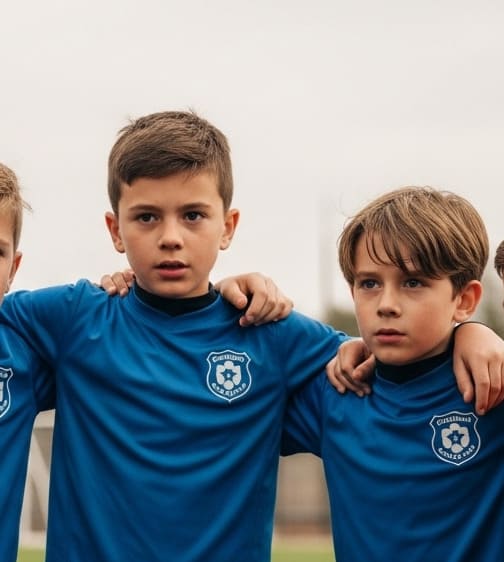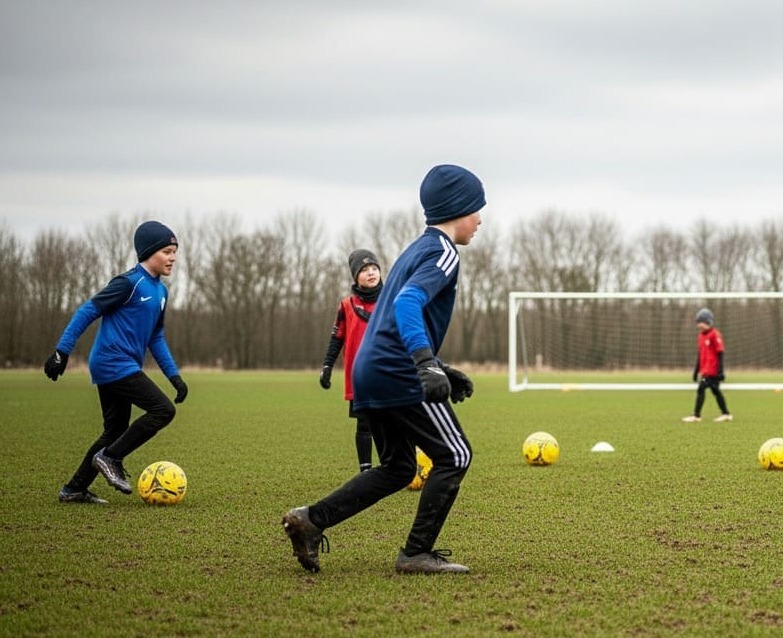How Teamwork, Responsibility, and Confidence on the Pitch Create Leaders for Life
At We Make Footballers in the UK, we are passionate about developing leadership skills in football from the very first kick. Our "Practice makes Permanent" philosophy means young players learn values like responsibility, teamwork, and respect, then repeat them until they become natural. When a five-year-old calls for a pass or helps a teammate up, they are not just playing football - they are laying the foundation for strong leadership. That spark of initiative grows into skills that last well beyond the pitch.
Communication Skills for Young Athletes
Training communication skills for young athletes goes beyond drills. At We Make Footballers, children practise call-and-response activities, huddle chats, and listening games. They learn to signal for passes, nod in understanding, and use hand gestures when needed. Small-sided games encourage constant communication, helping kids build confidence in expressing ideas clearly. This focus develops voices that are heard on the pitch and beyond, in classrooms and friendships.
Building Confidence in Children
Confidence develops through small, repeatable wins. That is why sessions are broken into achievable milestones where players can succeed step by step. Small-group tasks, rotation of leadership roles, and coach feedback loops ensure every child feels valued. Coaches celebrate effort as much as results, reinforcing that mistakes are part of growth. Tips for building confidence in children include: • Celebrate attempts, not just goals. • Rotate leadership so every child leads an activity. • Track milestones, such as mastering a pass three times in a row. With structured encouragement, confidence becomes a steady habit rather than a fleeting moment.
Importance of Teamwork in Sport
Teamwork teaches children that success comes from shared goals and mutual respect. At We Make Footballers, players experience structured passing drills, peer encouragement, and role-based games that emphasise trust. Coaches remind players that teamwork is not a weakness but a strength that makes every squad stronger. Respect and sportsmanship remain at the heart of every session.
Motivating Teammates in football
Motivating teammates in football is a leadership skill taught through playful strategies. Children are encouraged to give positive shout-outs, share peer support tokens, and practise short pep-talks. Reward systems, such as "Team Spirit" tokens, keep motivation high. By modelling positivity, kids learn empathy and encouragement - qualities that shape both strong teammates and strong leaders.

Problem-Solving on the Pitch
football constantly presents new puzzles. At We Make Footballers, coaches use scenario-based games that mirror match challenges. Guided discovery and The FA’s Four Corners Model are applied to combine technical skill, physical activity, psychological resilience, and social interaction. These activities nurture creativity and teach children to adapt quickly, both on and off the pitch.
Decision-Making Under Pressure
Decision-making under pressure is developed through rapid-fire drills, timed small-sided games, and challenges with strict time limits. Players learn to make quick, smart choices under stress, preparing them for real matches. Leading by example in sport is encouraged, with children given opportunities to step up and inspire teammates during high-pressure situations.
Taking Responsibility Activities for Kids
Taking responsibility is central to leadership. At We Make Footballers, children are given roles such as "captain for a day," equipment helper, or match organiser. Off the field, activities like the "Captain’s Log" encourage kids to reflect on leadership moments. These tasks build accountability, communication, and planning skills, ensuring children understand that leadership is about responsibility as well as confidence.



